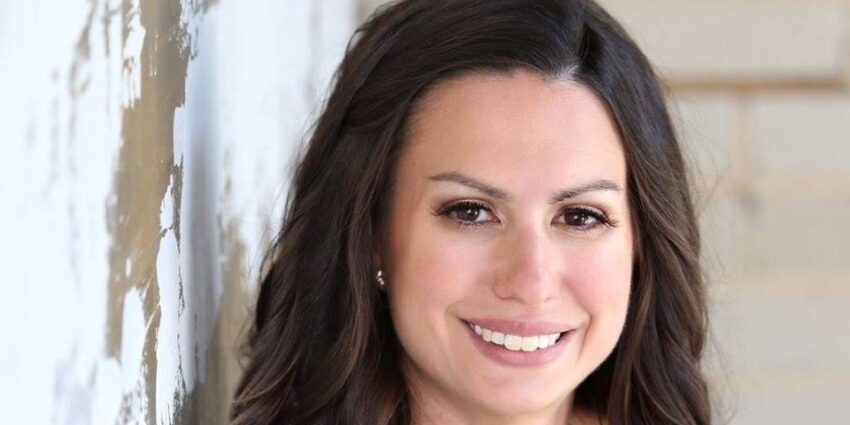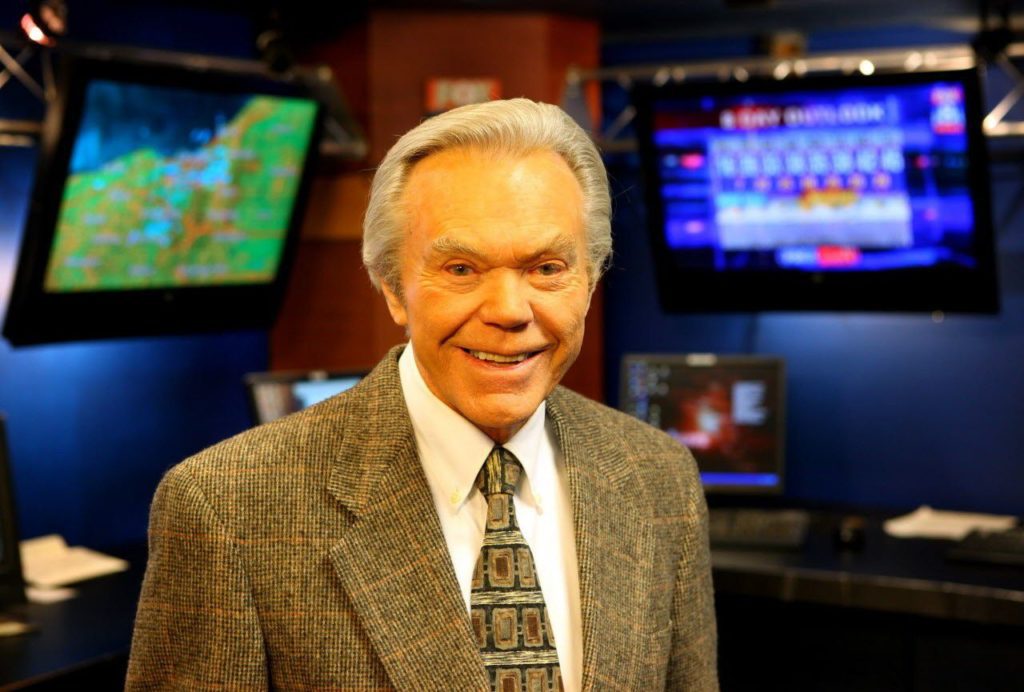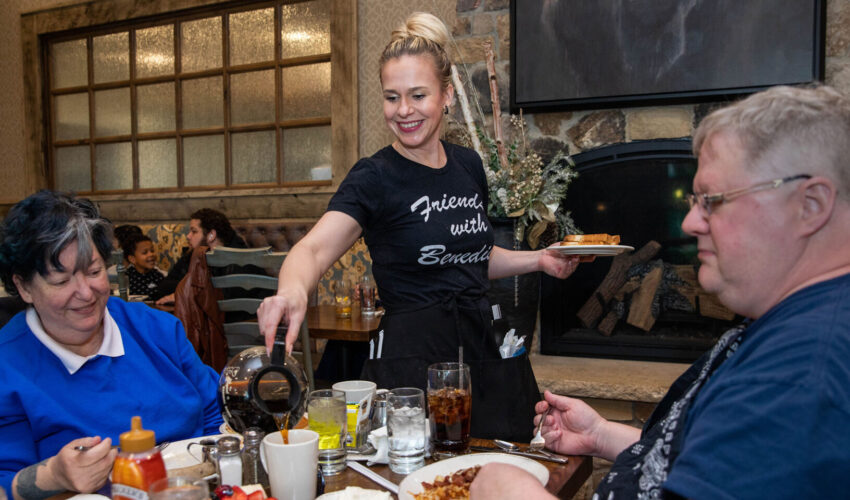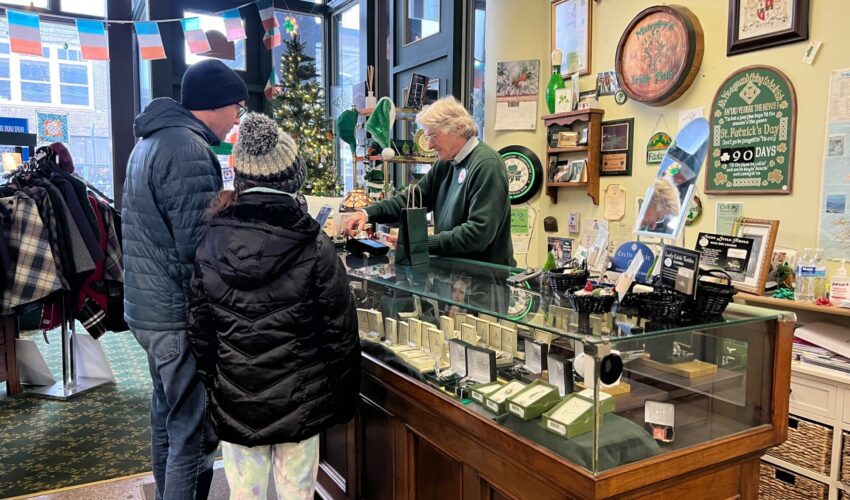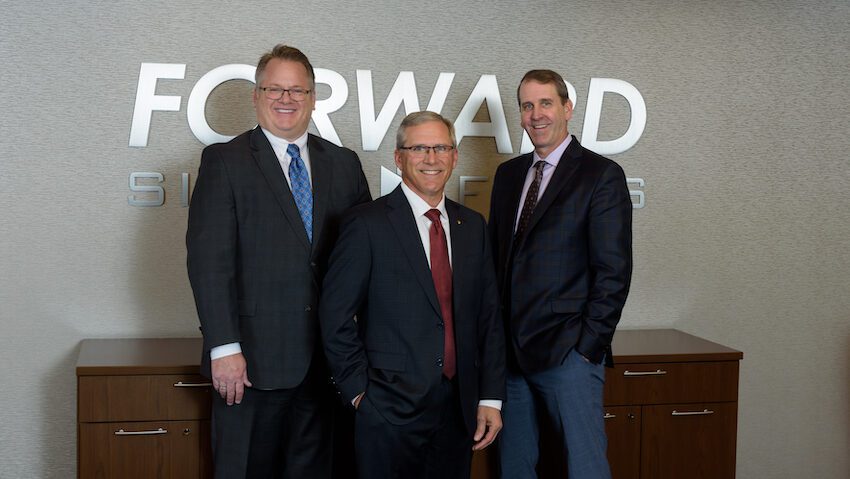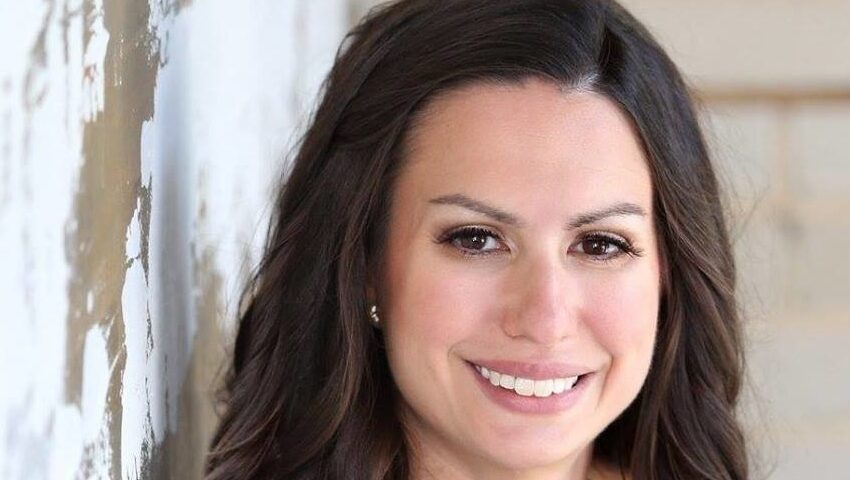Jodi’s Journal: ‘Fake news,’ media-bashing and the way forward
Aug. 9, 2020
My hometown of Cleveland lost a legend last week with the passing of longtime meteorologist Dick Goddard.
He spent 50 years in the industry, and I first met him as a teenager who somehow figured out a way to intern at the TV station while in high school. His Wikipedia entry says he holds a Guinness World Record for the longest career as a weather forecaster.
Goddard was Cleveland’s Dave Dedrick, aka Captain 11, to use an analogy those of you who grew up watching South Dakota news of a certain era will understand. Clevelanders felt like he was part of their family. They rallied behind charitable causes he supported, especially animal rights.
When I grew up watching his newscasts, he and his colleagues on the anchor desk had a sense of camaraderie that made you feel like they were your friends and neighbors.
They helped shape my view of how a media leader should serve a community, so it was striking that on the same day I learned of Goddard’s passing, I saw a report with the headline “Americans are losing faith in an objective media.”
It pointed to a recently released survey by Gallup and the Knight Foundation that found Americans increasingly see or suspect bias in news reporting. An incredible 86 percent said they see a great deal or a fair amount of political bias in news coverage. And a majority said they even see bias in whatever they consider the go-to news source that they rely upon most often.
Probably not surprisingly, more Americans say they are concerned about the bias in the news other people are getting – 69 percent – more than they worry about their own news being biased – 29 percent.
More concerning: This poll was taken in late 2019 and early 2020, before the pandemic and resulting cascade of news and associated backlash.
The past few months have been eye-opening to me as a consumer of national news – especially cable news, which I admittedly watched little of before the pandemic. If your exposure to news consists primarily of those sources, I understand why you’d recognize bias. There’s far too much crossover between actual reporting and news teams’ opinions on the events of the day. And if you read whatever headline grabs your eye on social media without digging into the source behind the story, you easily can encounter shoddy so-called reporting.
But here’s my take: While some backlash against this type of reporting is warranted, the growing tendency to lash out at my entire industry is not. Most of us, especially locally, enter our profession with a genuine desire to communicate information, connect to our communities, tell the tough stories when needed and share the good ones when we can. We respect journalistic ethical standards and try our best to adhere to them.
This nugget in the survey was extra eye-opening to me: Most Americans suspect inaccuracies in reporting are designed to push a specific agenda.
Seriously. When encountering inaccurate news, more than half – 54 percent – think the reporter is intentionally misrepresenting the facts. Twenty-eight percent think the reporter is making them up entirely.
What’s even more disheartening is that I personally have seen this perception play out in recent months. For SiouxFalls.Business, the pandemic has created an unprecedented amount of news to cover and also has broadened our audience. This means we’ve engaged with a lot of new readers, especially on social media.
Fortunately, our journalism training means we don’t make too many factual errors. But it is incredible to me how quick some readers are to judge us when we do.
The most memorable actually wasn’t an error we made, but a glitch that somehow happened when we posted an update on COVID-19 cases to social media. In our short introductory comments, I wrote how we had noticed a bigger than normal increase in cases that day. It was true, and it was something I thought readers should know. But for some reason, when readers clicked on the link associated with it, they were taken to an old version of our daily update page from a couple of months prior, with numbers that clearly were outdated.
And some readers landed on me right away, blasting me for posting “fake news” and attempting to deceive them by sharing an old story. I spent the next hour trying to explain that Facebook had somehow pulled in the wrong link and trying to direct them to the correct one.
I’ve had similar backlash to stories that aren’t factually wrong, but commenters have painted them as “fake” apparently because they disagree with the information.
Here’s what you need to know: Any legitimate journalist hates to make mistakes. I absolutely do. It is not a good day when I have to correct a factual error in our work. I guarantee you it upsets me as much or more than anyone reading it. I know our credibility with our readers and our sources depends on accuracy. That’s what builds trust, and without trust, none of this works.
But understand that we in the media are human, too, whether we work locally or nationally, on television, in print or online. We are going to make mistakes. We are going to communicate at times in ways that could be more clear. And we occasionally will have a lapse in judgment. That does not mean we are trying to advance an agenda, deceive you or produce a piece of fiction.
If there are mistakes made, it’s more likely because of inexperienced staff without enough mentoring working in environments that sometimes neglect quality journalism in a push to publish something first. In my case, it’s generally a miscommunication or the result of trying to juggle too many things at once — or technology just deciding it’s going to mess with my work!
There have been so many times, especially in recent months, when I’ve seen or heard bashing of “the media.” It’s pretty much always phrased as “the media.” I even see it online from people I consider friends or good professional acquaintances.
When I do, it has been really tempting to comment — to ask them what I’ve done professionally to warrant that kind of blanket criticism. I suspect they would reply that they weren’t talking about me, that I’m an exception, that they appreciate what I bring to this community. At least, I hope they would.
But the truth is, you are talking about me when you broadly bash “the media.” You’re talking about my friends and colleagues who work in this industry in South Dakota and across the country. I’ve worked with every major newsroom in this city, and they’re filled with people who are just trying to do their jobs the best they can and serve their audience.
Words matter. They mean something. So how about a compromise? I recognize why you’re frustrated with some media. It’s warranted. So how about if you must express those feelings, you begin saying “some media” instead of “the media?” It might seem like a small change, but it would mean a lot to those in my profession who are trying to do an increasingly critical job in an increasingly tough environment.
I worry that the current tendency to paint “the media” in such a harsh light is going to dissuade talented young people from entering our industry at a time when we really need them, both for their perspective and their skills in evolving our business model. The Gallup report found less than one in five Americans younger than 30 has a very or somewhat favorable view of the news media, compared with 44 percent age 65 or older.
These young people likely don’t think about a Dick Goddard or his counterpart in their city when they think about “the media.” They don’t think about a well-known columnist at a newspaper. Our shift to digital has meant a de-personalization of news on platforms where the loudest voices often end up being amplified the most.
“Don’t ever think you know everything,” Goddard said in one of his final interviews about his career. “The truly educated never graduate. Don’t forget that.”
Our industry has a lot of work to do, no question. Those of us navigating it need to assume the kind of humility combined with natural curiosity that Goddard referenced. But it would help if those consuming our work didn’t slam an entire industry based on the work of some.
The good news is the vast majority of Americans – 92 percent – say it’s critical or very important for the news media to provide accurate and fair news reports, and 84 percent say that, in general, the news media is critical or very important to democracy. There’s still a lot of support and desire for this industry to serve its role. And with that, I’d better get back to work.

